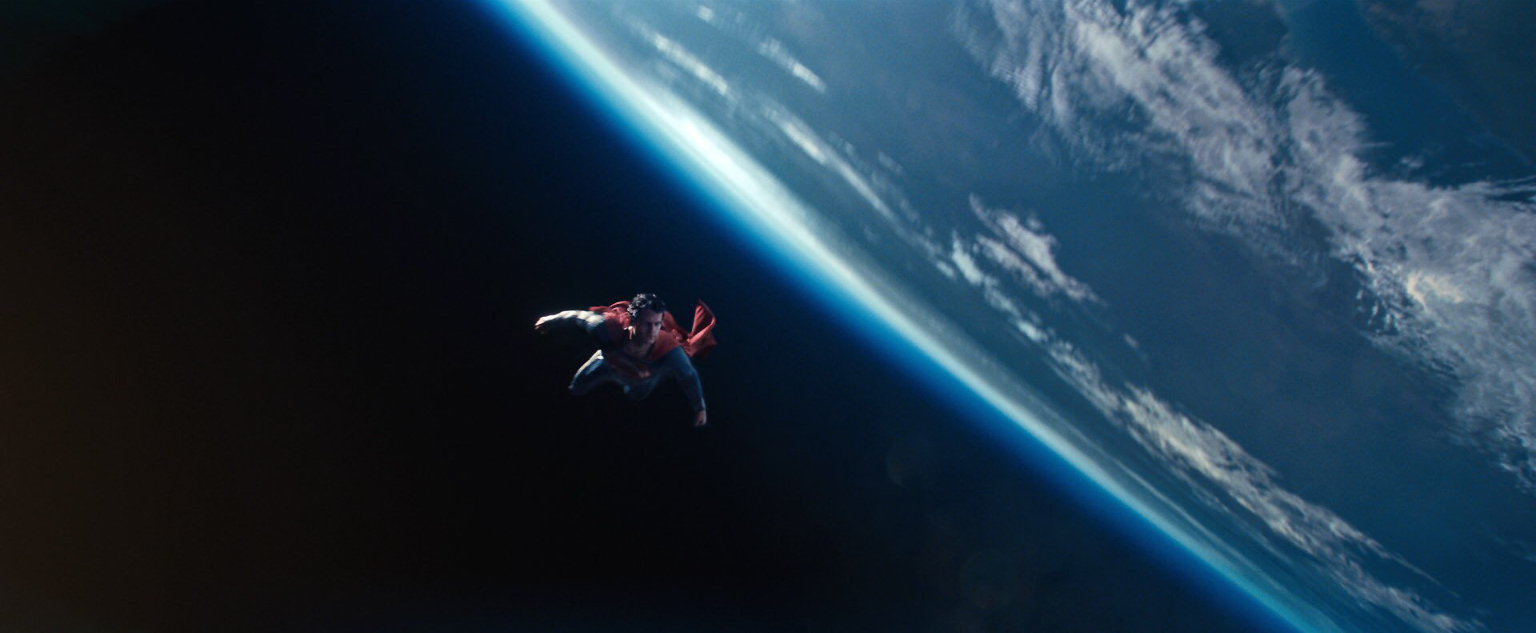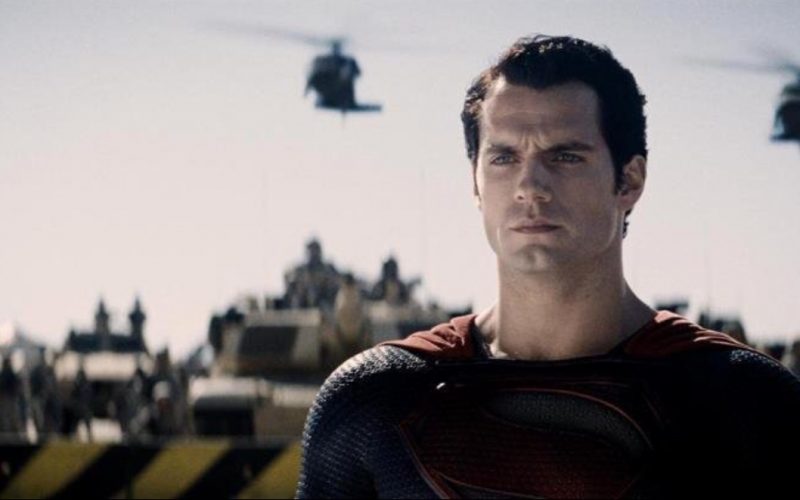Man of Steel (2013) – Review.
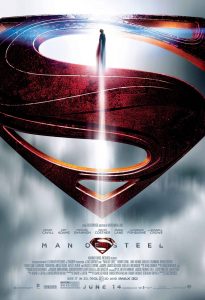 For many, director Zack Snyder launched the DC Extended Universe with a well-intentioned misstep. Man of Steel attempts to explore the reasons why Superman chooses to help humanity by giving us his origin story, but the film often trades logic for cryptic dialogue and fails to explore its themes cohesively, instead bouncing them against one another and giving the viewer every reason to disconnect from the story being told.
For many, director Zack Snyder launched the DC Extended Universe with a well-intentioned misstep. Man of Steel attempts to explore the reasons why Superman chooses to help humanity by giving us his origin story, but the film often trades logic for cryptic dialogue and fails to explore its themes cohesively, instead bouncing them against one another and giving the viewer every reason to disconnect from the story being told.
Henry Cavill stars as Superman/Clark Kent and he’s surrounded by a cast that includes Laurence Fishburne, Amy Adams, Russell Crowe, Kevin Costner, Diane Lane, and Michael Shannon. That is a mightily talented list, but unfortunately several of them are wasted. The film opens with an overlong prologue set on a fantasy-inspired Krypton, coming dangerously close to promising us a film we never get and regales us the tale of its destruction. Hans Zimmer’s soundtrack takes the lead almost from the beginning of the film, often creating the impression the film is simply a music video made to accompany Zimmer’s booming orchestral triumph.
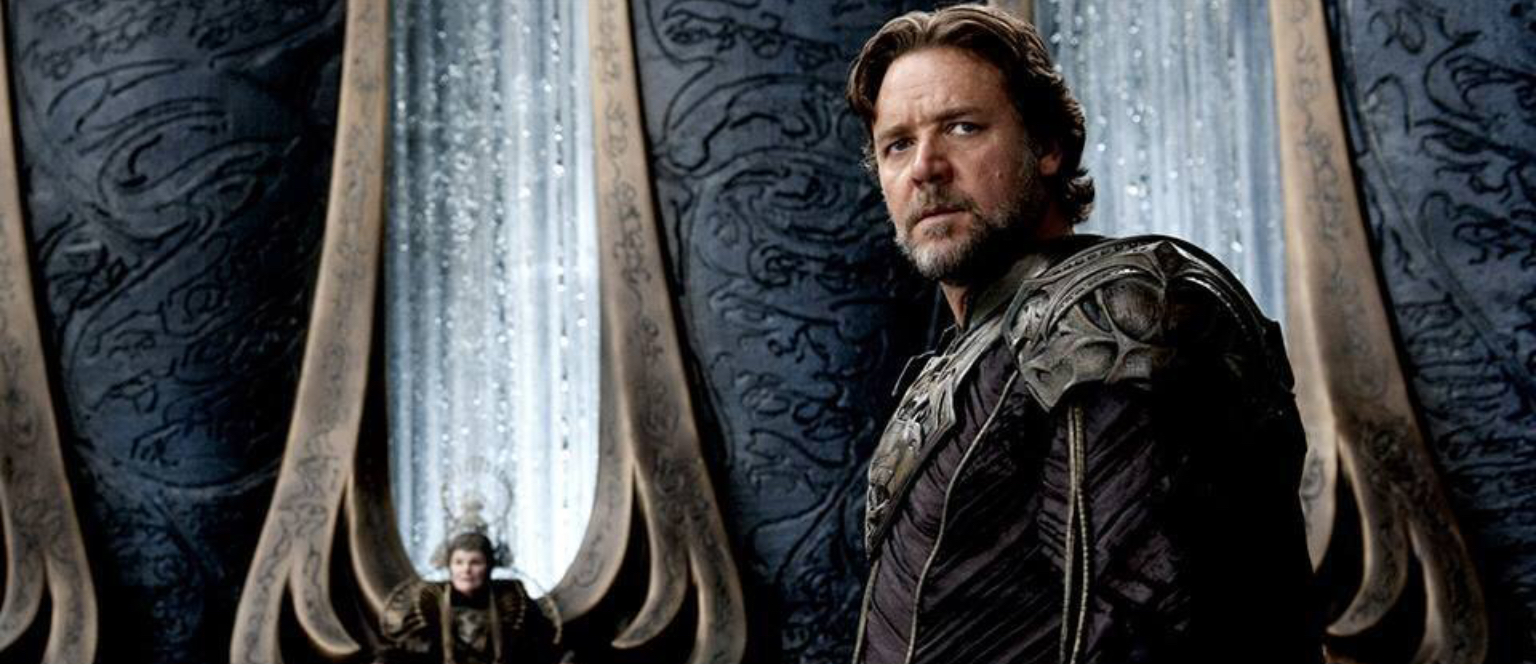
The prologue does however, introduce us to General Zod (Shannon), the villain of the film, and trickles details into the frames that hint at what would eventuate into Zod’s ultimate goal. Before Zod makes his grand entrance though, the film is an angst-riddled tale of self discovery. Some of it works, some of it doesn’t. Flashbacks are fed to us in between present-day, at times offering a jarring transition. Where occasionally they offer insightful and quite heartfelt looks into Clark’s childhood, more often than not they emphasize the poorly scripted dialogue. They even manage to undermine one of the film’s central themes.
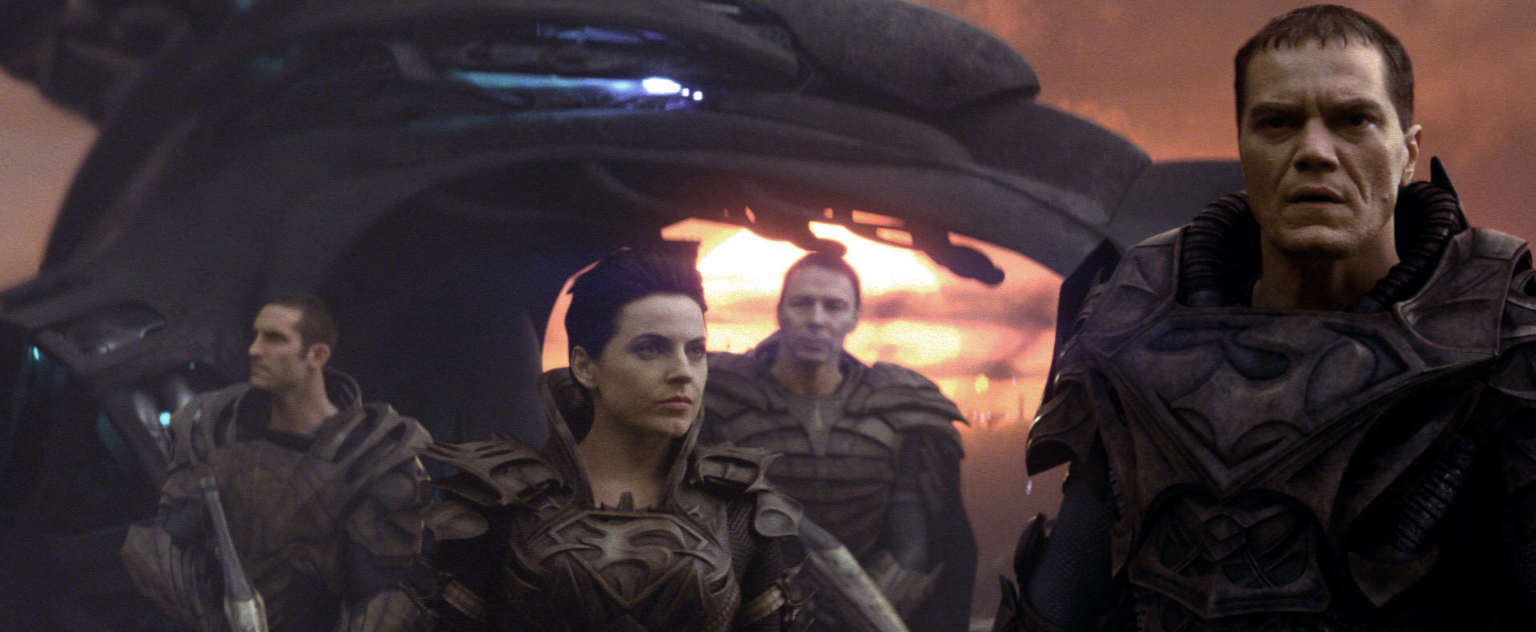 Early on it’s made clear that Clark needs to figure out what kind of man he wants to be, and it’s this choice that drives much of his journey in the film’s first half. But it’s a facade that the script seems to have written in accidentally. The first cracks appear on the countless occurrences in which Pa Kent (Costner) demands that there must be a reason for Clark being sent to Earth – hell, even Jor-El (Crowe, Clark’s Kryptonian father) in his subconscious state spews forth some jargon about how Clark can be “the bridge between two peoples.” This is a complete contradiction to the prologue, in which Clark is sent to Earth purely so that he could survive the oncoming destruction of Krypton. Here, it’s most clear that the film is trying to be prophetic, but instead it just undermines the base, paternal reasons for Clark’s departure from his home-world.
Early on it’s made clear that Clark needs to figure out what kind of man he wants to be, and it’s this choice that drives much of his journey in the film’s first half. But it’s a facade that the script seems to have written in accidentally. The first cracks appear on the countless occurrences in which Pa Kent (Costner) demands that there must be a reason for Clark being sent to Earth – hell, even Jor-El (Crowe, Clark’s Kryptonian father) in his subconscious state spews forth some jargon about how Clark can be “the bridge between two peoples.” This is a complete contradiction to the prologue, in which Clark is sent to Earth purely so that he could survive the oncoming destruction of Krypton. Here, it’s most clear that the film is trying to be prophetic, but instead it just undermines the base, paternal reasons for Clark’s departure from his home-world.
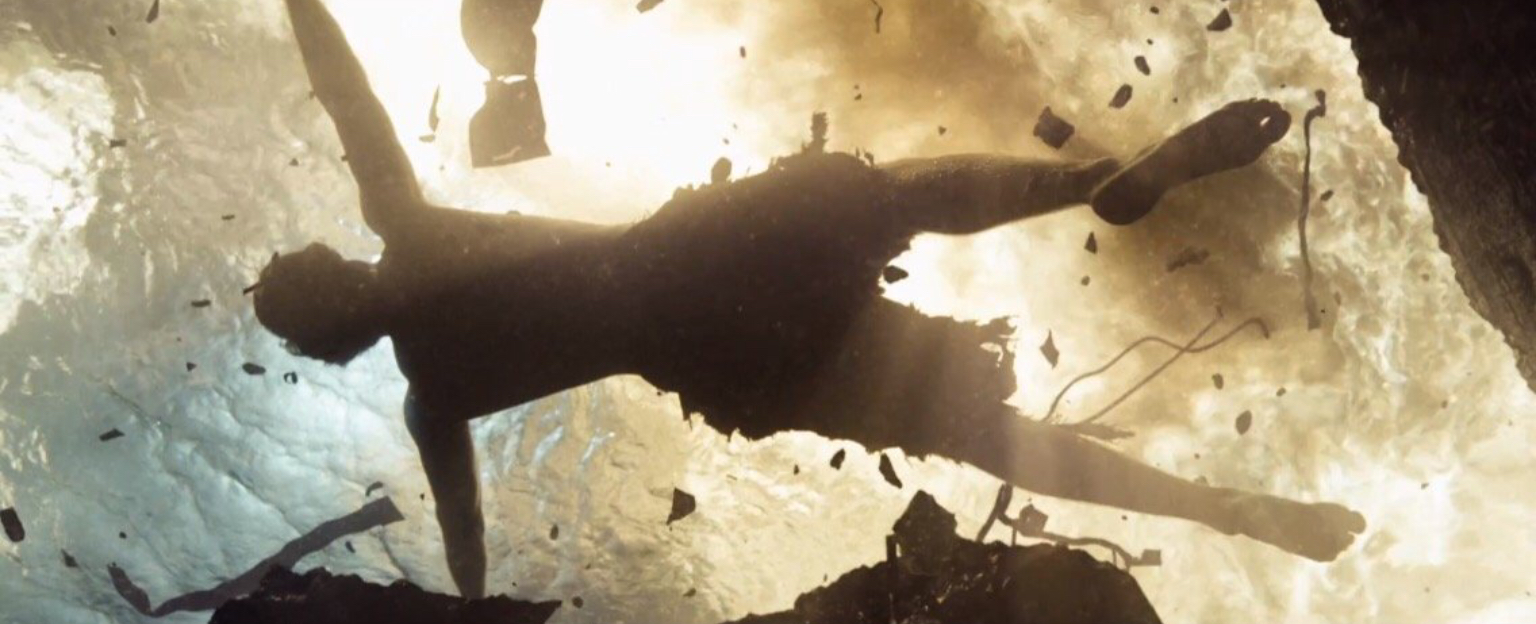
The choices that Clark is constantly given are the most glaring misdirects, and that’s a clear fault of the script. Choice is completely absent despite what the characters are telling Clark, because at every major turn someone is telling him what not to do. No clearer is this than in the emotionally manipulative flashback detailing Pa Kent’s death during a hurricane. Where Clark could easily have saved his life, Jonathan Kent prevents him from doing so because he does not want the world to know what he is. There are complex ideas to explore here; where Pa Kent believed people would fear and shun him, Jor-El is convinced that he can be a beacon for Earth’s populace. But these very commanding, contradicting beliefs push Clark into corners on multiple occasions so that we don’t really learn why he does the things he does. We just know that he wants to help people. The story relies on the years the character has been around, but Superman never really earns that discovery here.
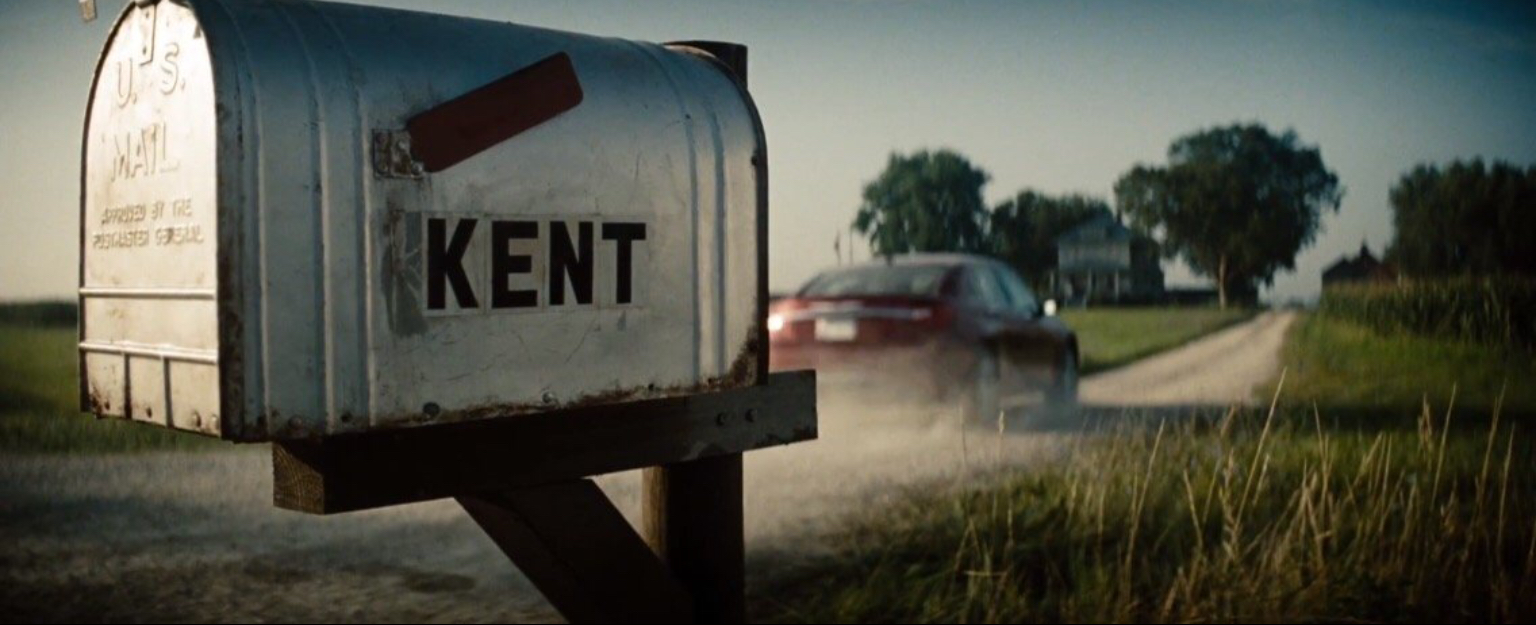 Amy Adams as Lois Lane is the biggest victim of a film that clearly wants to find a reason for her to exist in a notably male-dominant narrative. Instead of finding tangible reasons for her presence, the script continually thrusts her into danger for Superman to rescue her from. Having Zod demand she accompany Superman onto his ship makes no sense, and simply gives Snyder a chance to stage a daring escape before a subsequent rescue from the titular hero.
Amy Adams as Lois Lane is the biggest victim of a film that clearly wants to find a reason for her to exist in a notably male-dominant narrative. Instead of finding tangible reasons for her presence, the script continually thrusts her into danger for Superman to rescue her from. Having Zod demand she accompany Superman onto his ship makes no sense, and simply gives Snyder a chance to stage a daring escape before a subsequent rescue from the titular hero.
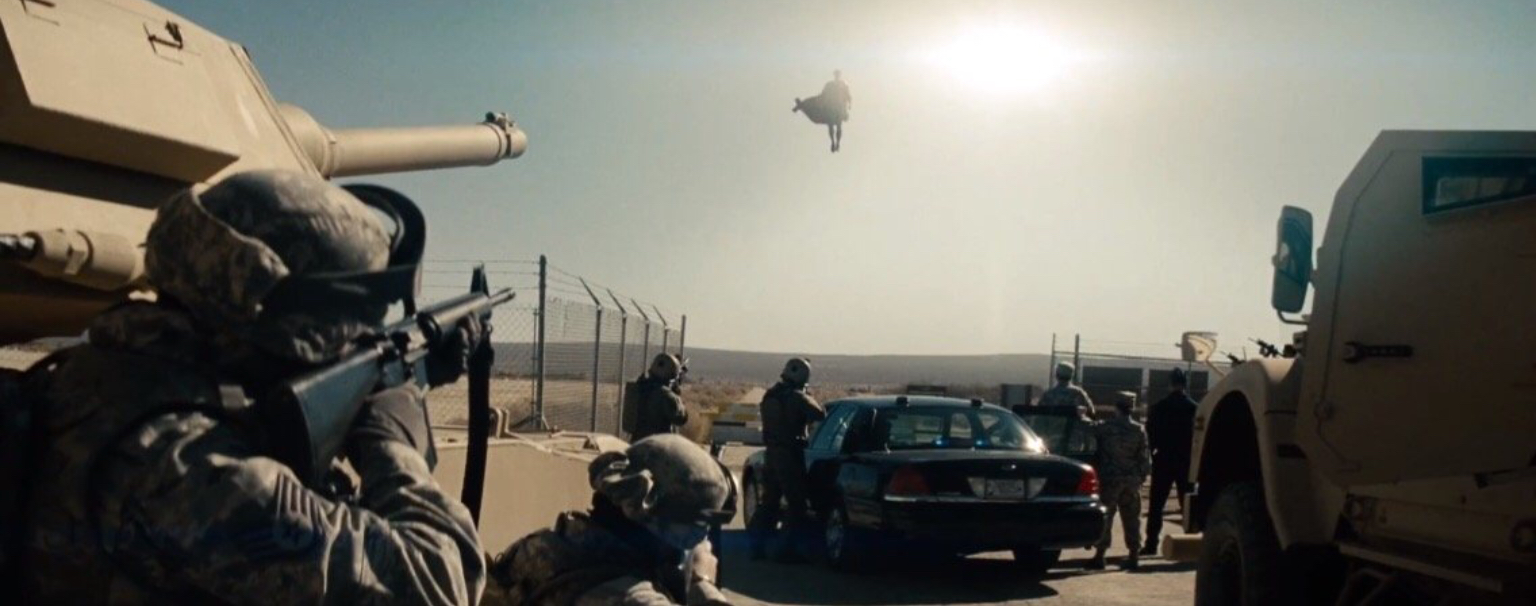
The friendly folks at the Daily Planet, led by Perry White (Fishburne), are given a few sequences where they face dire peril in the film’s climax for some reason; that reason isn’t clear and it seems like a pointless aside. Cavill does what he can as Superman, and carries himself with the right amount of charisma. Costner is fantastic as Clark’s Earth father, despite his poorly conceived exit.
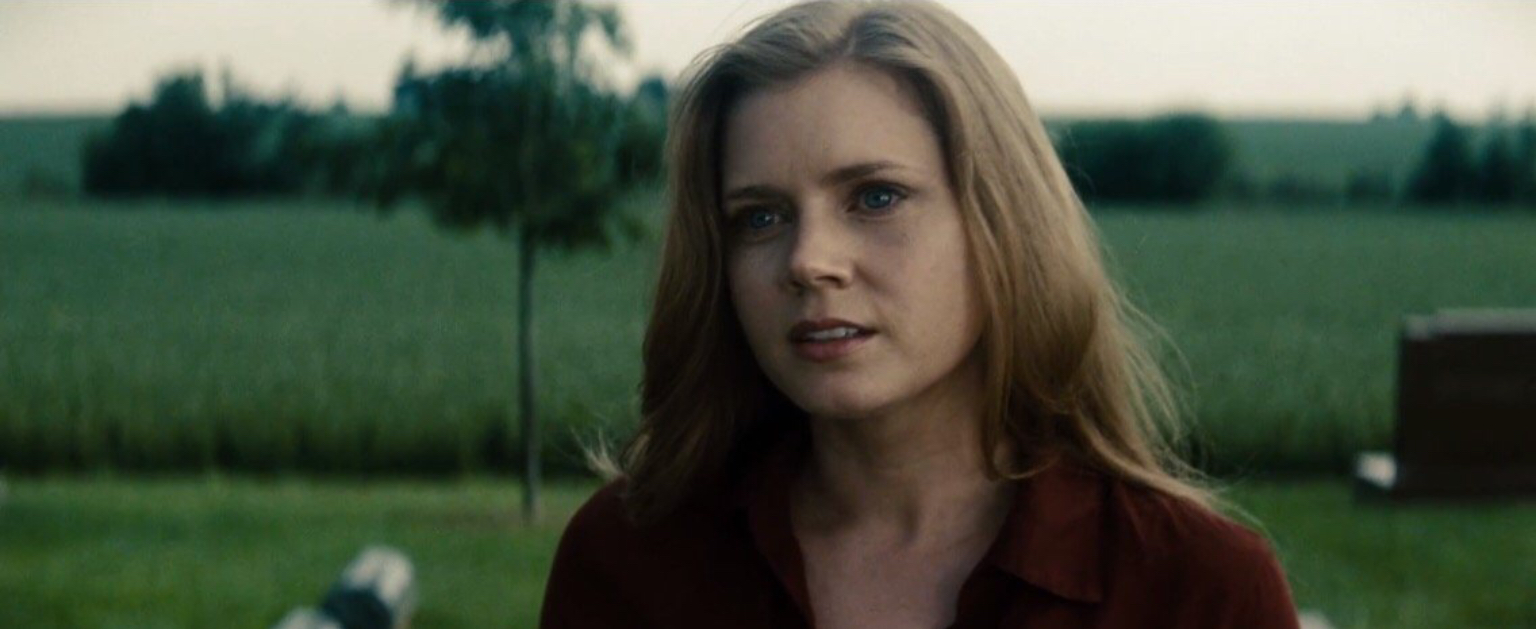
If it sounds like I despise Man of Steel, then I should clarify. There are redeeming moments in the film. I am particularly fond of this less wholesome, less optimistic envisioning of the character, and I think his existential crisis works here. The film looks and sounds magnificent. The “Flight” sequence is a soaring and awe-inspiring moment for the character, and may even be a match for Wonder Woman’s “No Man’s Land” march in her solo outing earlier this year.
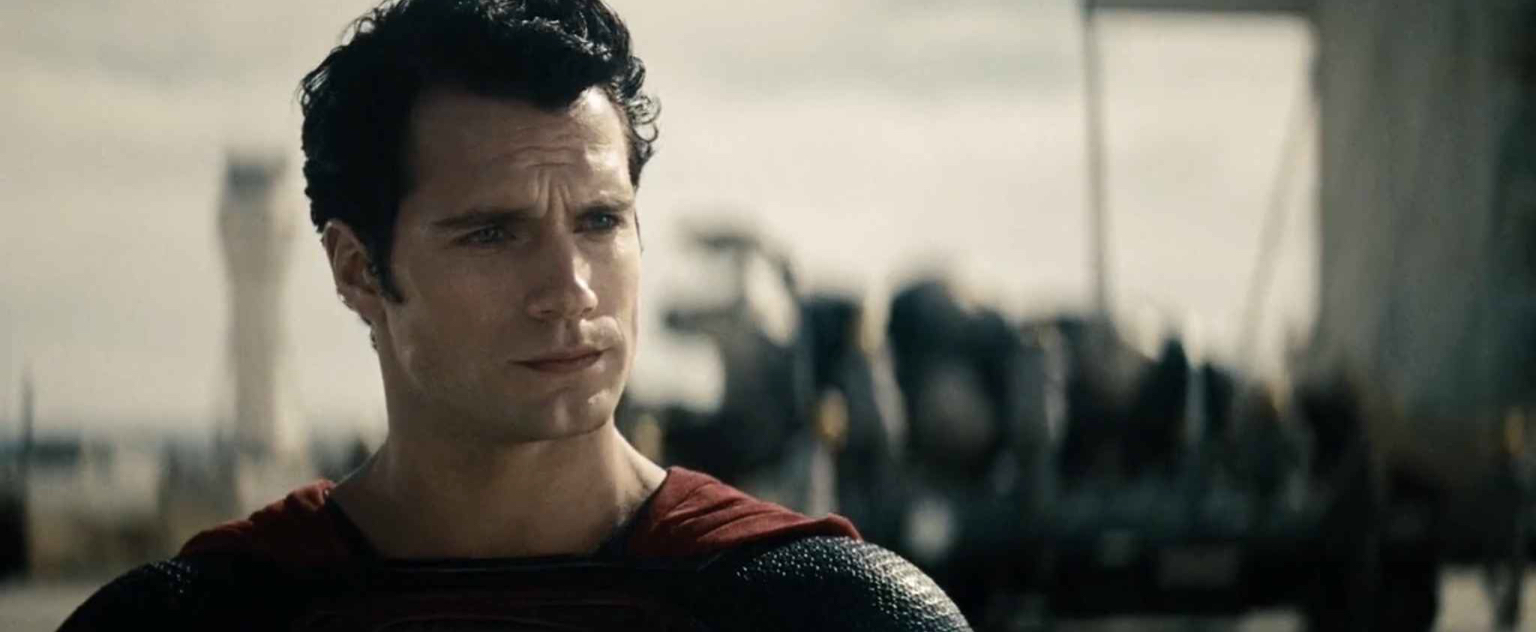 But the cons are unfortunately hard to ignore. Man of Steel would be an infinitely watchable film based on its musical composition and visuals, and it’s refreshing take on the central character’s fight to find his place in our world, but the cracks grow wider on every repeat viewing. David S. Goyer’s script fails to provide Superman with enough motive and, though witnessing the character built from the ground up is a worthy notion for the birth of a film franchise, it unfortunately feels cold at just the moments where it should tug at our love for the character. Its cast can’t keep it from feeling like a missed opportunity, and Man of Steel often fails to take off where it should soar. Nor does it convince its viewer that a DC Universe can grow naturally and organically considering that for many DC fans, this one included, the wrong hands are planting the seeds.
But the cons are unfortunately hard to ignore. Man of Steel would be an infinitely watchable film based on its musical composition and visuals, and it’s refreshing take on the central character’s fight to find his place in our world, but the cracks grow wider on every repeat viewing. David S. Goyer’s script fails to provide Superman with enough motive and, though witnessing the character built from the ground up is a worthy notion for the birth of a film franchise, it unfortunately feels cold at just the moments where it should tug at our love for the character. Its cast can’t keep it from feeling like a missed opportunity, and Man of Steel often fails to take off where it should soar. Nor does it convince its viewer that a DC Universe can grow naturally and organically considering that for many DC fans, this one included, the wrong hands are planting the seeds.
Film ‘89 Verdict – 6/10
